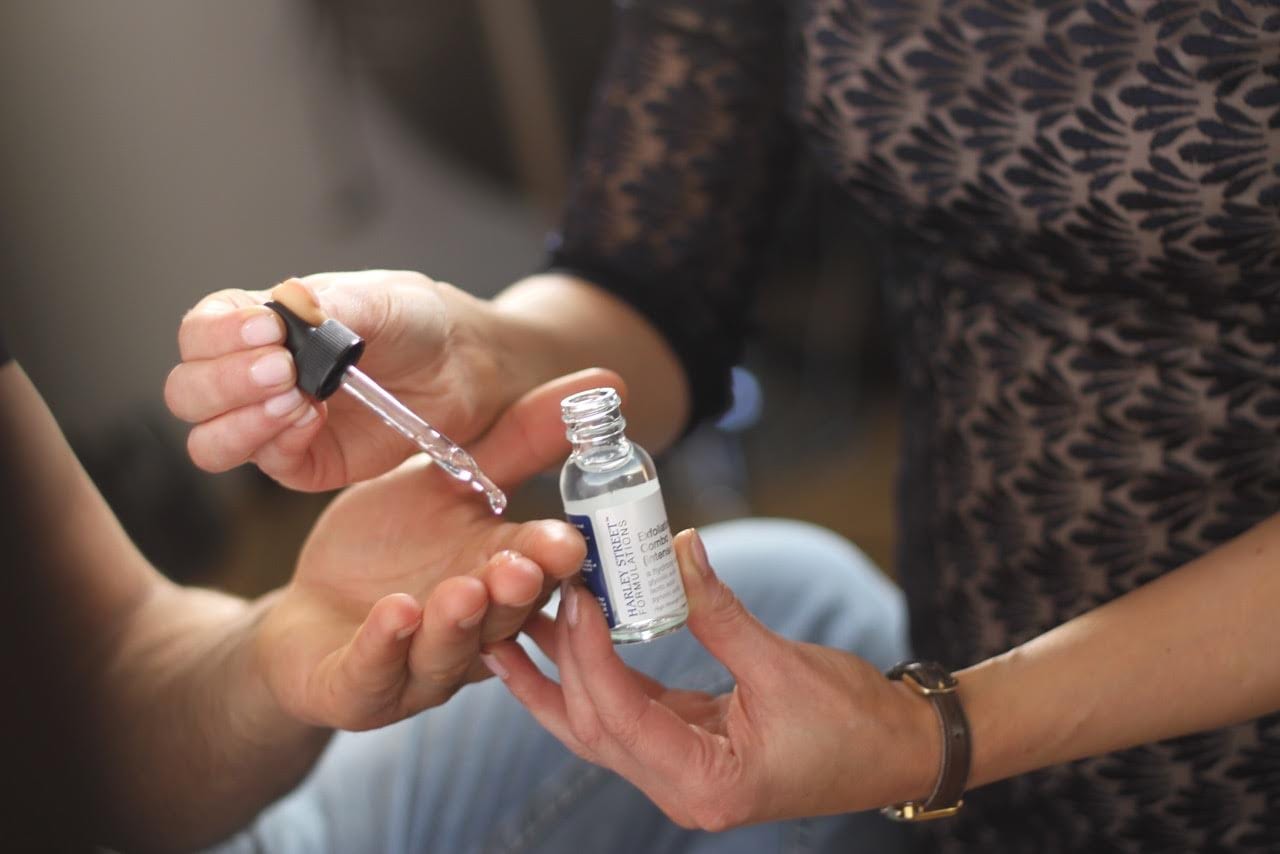People are very receptive when it comes to trying new skin care products, especially if those products are made by renowned brands and contain ingredients proven to exert specific benefits for the skin.
Women and men, younger or older, are constantly looking for ways to improve their appearance and rejuvenate their look, so it comes as no surprise that they’re willing to invest significant amounts of money into products and procedures that can hide the small skin imperfections, make the dark spots and fine lines disappear or remove wrinkles and create an even skin tone.
However, high street products aren’t always as effective as claimed in the ads you see online, in magazines or on television. Although the public perception is that over-the-counter products like anti-aging creams produced by renowned companies are indeed effective in diminishing the signs of aging and restoring the skin’s youthful appearance, the truth is that these products, intensely marketed through mass campaigns, only contain small amounts of the active principles that could exert the marketed effects and could help one experience the claimed benefits.
Moreover, lots of these products can actually make your skin look worse, as they contain ingredients that can clog the pores, dry the skin or trigger acne outbreaks. So instead of spending huge amounts of money on high street cosmetics, just because everybody knows the brand and you’ve seen thousands of ads and marketing campaigns for those products, you could do a little research and find those products that can really improve your skin’s health and aspect.
Why High Street Skincare Products will not deliver the Claimed Results
Prescription skincare products, in comparison to high street products, contain much higher doses of active principles, so if a brand anti-aging cream provides vitamin A for example, you can expect to find the same ingredient in prescription products in much higher doses.
The explanation is very simple: over-the-counter products, regardless of the brand, are produced in millions of units, and most brands can only sprinkle their products with tiny amounts of active ingredients; those concentrations aren’t high enough for the products to actually cause a significant change to the skin, but are still present there, so the producers can add those ingredients on the boxes and market their creams and gels as “anti-acne”, “anti-aging” and so on.
Obviously, one of the reasons behind this strategy is the higher cost of products made with higher concentration of active principles. The second reason is that in lots of countries there are laws that say that cosmetics sold over the counter can only contain ingredients that don’t alter the physiology of the skin, as in this case they would have to be classified as drugs.
And third, think of the fact that over-the-counter cosmetics are distributed to thousands of thousands of clients. If the doses of active ingredients would be high enough to actually change the skin’s composition and function, then there would also be hundreds of people who would experience side effects from such high doses. No doubt here, so it’s clear that companies can’t afford to have large masses of consumers with health issues caused by too powerful products.
Whether you pay $25 or $250 for an over-the-counter anti-aging cream, you will only get a cosmetic that can moisture, hydrate or cleanse your skin, but that cannot alter its composition and structure in a deeper manner. So the next time you’re about to invest in a high street product, ask yourself whether that cream contains enough active ingredients to cause the claimed effect.
But if these products that are so popular aren’t able to deliver the results marketed by producers, what are we supposed to treat our skin with, on a daily basis? What products should we use in our skincare routine in order to improve its appearance and avoid acne, excess sebum production, the occurrence of new wrinkles or of dark spots and scars?
The shortest answer to the previous question is cosmeceuticals. Cosmeceuticals are skincare products used in clinics, which contain much higher doses of the active principles, and thus can exert a more profound effect on the skin.
Cosmeceuticals, Your Best Allies for a Youthful Skin
Unlike over-the-counter products, cosmeceuticals contain ingredients like retinol (vitamin A) or retinoic acid, peptides (matrixyl), vitamin C which is a strong antioxidant, or exfoliating ingredients like lactic, glycolic or pyruvic acid, in concentrations that are high enough to affect the skin and rejuvenate it.
Cosmeceuticals are classified as products that penetrate through the layers of the skin and affect its structure and functions, while cosmetics – despite the marketing and advertising claims – are defined as products intended to be poured, sprinkled, rubbed or sprayed on the human body for cleansing, beautifying and altering the appearance.
While products bought in stores don’t have to prove the efficacy claims, those that are regulated as pharmaceuticals do have to support their claims with scientific studies, and cosmeceuticals are closer to this class of products than to cosmetics.
Cosmeceuticals are prescribed by licensed estheticians and are tested, lots of the companies that produce such skincare products offering the full clinical studies or details from the tests for the public to see. This not only helps in building credibility but also shows that cosmeceuticals can actually produce the claimed effects on the skin.
Given that they’re tested before being approved and distributed to clients, these products – although containing high doses of active ingredients, are safe and formulated specifically for delivering the active principles to the targeted cells in the skin.
Cosmeceuticals may look and feel like regular cosmetics, but they will make a skin difference, because they use the right amount of active ingredients. And speaking of ingredients, let’s take a quick look at some of the compounds you can find in these products.
Common Ingredients in Cosmeceuticals
With the right combination and concentration of ingredients, cosmeceuticals can prevent the developing signs of aging and restore your skin’s youthful and fresh appearance, repairing the damaged cells and removing the spots and lines. Given below are some common ingredients of cosmeceuticals:
- Vitamin A (retinol) – proven to reduce lines and wrinkles, sun damage and uneven skin tone
- Vitamin C – shown to reduce the signs of aging, to strengthen the skin and encourage its repair, as well as to restore damaged skin. It reduces skin inflammation and pigmentation
- Glycolic acid – helpful in removing dead skin cells from the skin’s surface, giving you a fresher look, improving hydration and making the skin smoother;
- Green tea – useful in rebalancing the skin and restoring the radiance of the tissue
- Vitamin B3 – through its antioxidant effect, it reduces the water loss and hyperpigmentation, creating an even tone, reducing fine lines and wrinkles and eliminating red blotches and spots
- Vitamin E – reduces sunburn, neutralizes free radicals and prevents aged skin as a result of sun exposure and UV radiation
- CoQ10 (ubiquinone) – antioxidant that reduces the collagen breakdown, maintaining the skin’s flexibility and elasticity and ensuring a youthful look
- Peptides – stimulate the production of collagen in the skin, improving the appearance of wrinkles
- Lactic, glycolic or salicylic acids – are exfoliants that remove dead skin cells, allowing the tissue to breathe and be hydrated properly and preventing the clogging of pores
- Retinoic acid (tretinoin) – one of the most potent agents against photodamaged and aged skin, it reduces fine lines and hyperpigmentation, minimizes wrinkles and protects against sunburn

















